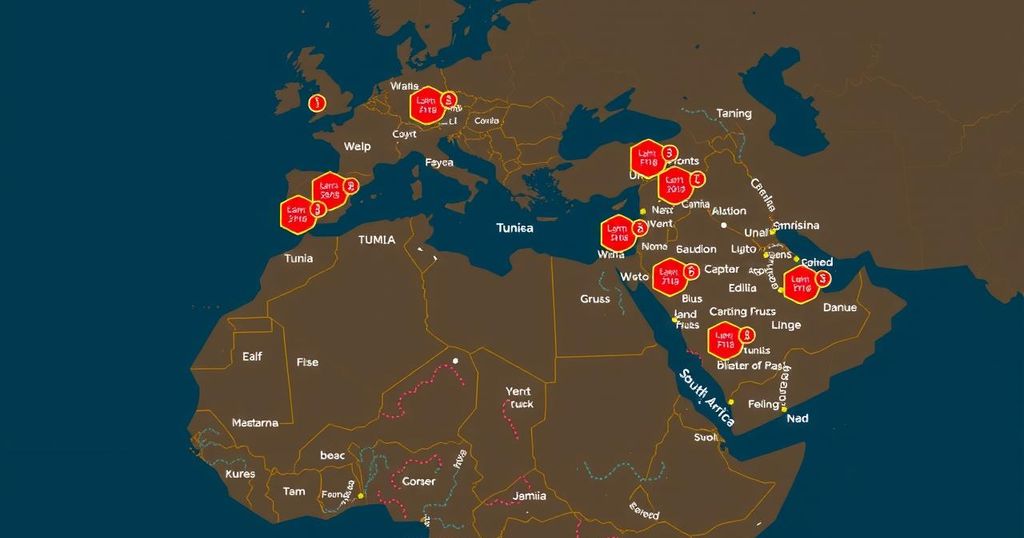Jumia will discontinue operations in Tunisia and South Africa’s Zando as part of its cost-reduction strategy, following previous service cuts in multiple countries. The adjustments aim to refocus on markets with stronger growth potential while navigating profitability challenges amid competitive pressures, including the entry of Amazon. These actions coincide with significant workforce reductions and a reported decline in revenues.
Jumia has announced the cessation of its operations in Tunisia and the closure of its online clothing outlet, Zando, in South Africa, by the conclusion of the year. This decision is a strategic maneuver aimed at curtailing costs and narrowing the company’s geographic operations. According to a company spokesperson, “Money isn’t limitless, and we prefer to focus on other markets where growth prospects are strong.” This latest development follows Jumia’s earlier decision to terminate its food delivery service, Jumia Food, in seven countries, including Tunisia and South Africa, in efforts to streamline operations and maximize financial efficacy. The firm had previously exited from markets in Cameroon and Tanzania in 2019. From its headquarters in Abidjan, Jumia has attempted to mitigate the implications of these closures by highlighting that Zando and Tunisia collectively contributed minimally to the gross merchandise value in the first half of 2024, accounting for only 4.5% and 3% respectively. The company acknowledged challenges in attaining profitability in these regions, particularly in South Africa, where Zando’s services no longer align with the realigned strategic focus instituted by CEO Francis Dufay. Dufay noted that the company has pivoted towards enhancing products in cosmetics and electronics, with the entry of Amazon into the South African market catalyzing this shift. In Tunisia, the limited market scale and prevailing macroeconomic hurdles hindered the potential for profitability. Expressing optimism, Dufay remarked that Jumia would be capable of compensating for the lost revenues through its more prosperous markets. As part of its ongoing strategy, the company has invested in expanding its warehouse capabilities in key locations, including Cairo, Lagos, Abidjan, and Casablanca, and is currently targeting secondary cities and rural areas for development. Jumia remains operational in several countries such as Algeria, Uganda, Senegal, Ghana, and Kenya. Additionally, these measures occur amidst significant workforce reductions; Jumia has already laid off approximately 40% of its staff since Dufay’s appointment in November 2022. Financially, the company reported a 17% decrease in revenue in the first half of 2024, totaling $36.5 million. In August, Jumia successfully raised nearly $100 million through a share offering in the United States. As of October 16, the company’s stock was priced at approximately $5.06.
Jumia, often referred to as the “Amazon of Africa,” has faced numerous challenges in expanding its e-commerce operations across various African markets. As the company’s leadership has evolved, so too have its strategic frameworks aimed at maintaining profitability while navigating difficult economic landscapes within the continent. The recent decisions to pull back on operations in less profitable regions such as Tunisia and South Africa are part of a broader cost-reduction strategy that aligns with Jumia’s ongoing efforts to consolidate operations in markets where future growth appears more favorable.
In summary, Jumia’s strategic decision to cease operations in Tunisia and South Africa reflects a calculated approach to enhance profitability in an increasingly competitive e-commerce landscape. By redirecting focus towards more promising markets and adjusting operational strategies, Jumia aims to recover lost volumes and enhance its financial performance while adapting to the evolving market dynamics brought on by competition and local economic factors.
Original Source: www.theafricareport.com






